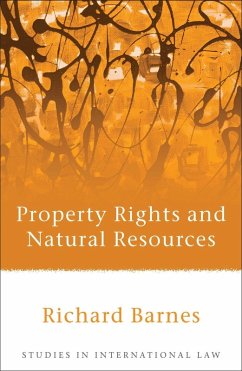Winner of the SLS Peter Birks Prize for Outstanding Legal Scholarship 2009.
The use of private property rights to regulate natural resources is a controversial topic because it touches upon two critical issues: the allocation of wealth in society and the conservation and management of limited resources. This book explores the extension of private property rights and market mechanisms to natural resources in international areas from a legal perspective. It uses marine fisheries to illustrate the issues that can arise in the design of regulatory regimes for natural resources.
If property rights are used to regulate natural resources then it is essential that we understand how the law and values embedded within legal systems shape the development and operation of property rights in practice. The author constructs a version of property that articulates both the private and public function of property. This restores some much needed balance to property discourse. He also assesses the impact of international law on the use of property rights-a much neglected topic-and shows how different legal and socio-political values that inhere in different legal regimes fundamentally shape the construction of property rights. Despite the many claimed benefits to be had from the use of private property rights-based management systems, the author warns against an uncritical acceptance of this approach and, in particular, questions whether private property rights are the most suitable and effective arrangement of regulating of natural resources. He suggests that much more complex forms of holding, such as stewardship, may be required to meet physical, legal and moral imperatives associated with natural resources.
The use of private property rights to regulate natural resources is a controversial topic because it touches upon two critical issues: the allocation of wealth in society and the conservation and management of limited resources. This book explores the extension of private property rights and market mechanisms to natural resources in international areas from a legal perspective. It uses marine fisheries to illustrate the issues that can arise in the design of regulatory regimes for natural resources.
If property rights are used to regulate natural resources then it is essential that we understand how the law and values embedded within legal systems shape the development and operation of property rights in practice. The author constructs a version of property that articulates both the private and public function of property. This restores some much needed balance to property discourse. He also assesses the impact of international law on the use of property rights-a much neglected topic-and shows how different legal and socio-political values that inhere in different legal regimes fundamentally shape the construction of property rights. Despite the many claimed benefits to be had from the use of private property rights-based management systems, the author warns against an uncritical acceptance of this approach and, in particular, questions whether private property rights are the most suitable and effective arrangement of regulating of natural resources. He suggests that much more complex forms of holding, such as stewardship, may be required to meet physical, legal and moral imperatives associated with natural resources.


